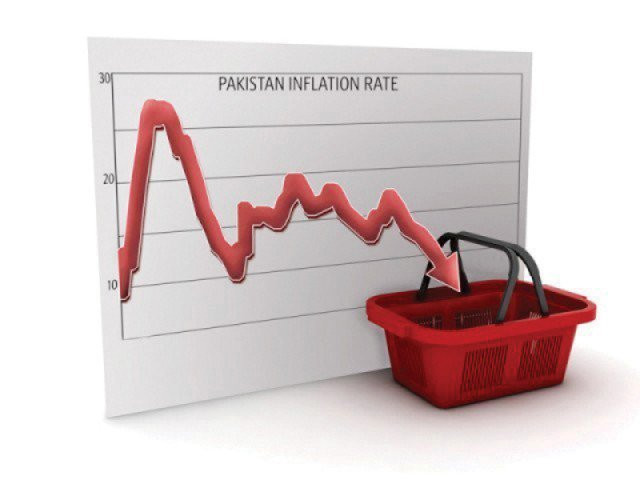Islamabad:
The inflation rate increased to 4.1% in July due to the increase in non -perishable food and energy prices, but remained within the early range, which still does not seem sufficient to mold the hard position of the central bank that is not willing to reduce interest rates to a single digit.
The Pakistan Statistics Office reported Friday that the average prices of the basket of essential goods and services increased at a rate of 4.1% in the first month of the new fiscal year 2025-26. It was the highest increase rate since December last year, but remained within the limit of 3.5 to 4.5% granted by the Ministry of Finance.
The monthly jump in the index was also in more than two years of the highest level, since the inflation rate increased 2.9% in July compared to the previous month, PBS reported.
The main reasons behind the increase in the rate were the increase in non -perishable food prices and the administrative increase in gas and electricity rates, according to PBS data.
The Central Bank has maintained interest rates at 11%, which are much higher than the main inflation rate. This only benefits commercial banks at the expense of the business and the federal government that grants about half of the total budget in interest payments.
The Government has assigned a total of RS8.2 billion for debt service, which is equal to 46% of the budget approved for the next fiscal year.
To justify any change in rates, the Central Bank’s Interest Committee declared this week that the inflation perspective has worsened a little following a higher adjustment than anticipated in energy prices, especially gas rates.
In addition, it is projected that inflation will be stabilized in the target range in the future despite the upward reviews in motor fuel prices and electricity rates, energy prices remained lower annually.
Despite stating that inflation will be stabilized within the limit of 5% to 7%, the SBP did not reduce interest rates.
The Central Bank also added that energy inflation is expected to increase the current levels in the middle of the significant upward adjustment in gas rates, eliminating the temporal reduction of electricity rates in the fourth quarter of the last fiscal year and a recent increase in motor fuel prices.
The Government reduced gasoline prices on Thursday in more than RS7 per liter.
With the new inflation rate, the gap between the inflation of the main ones and the key policy rate of the SBP remained at 6.9%. For the new fiscal year, the Government has approved an inflation objective of 7.5%, which still provides more space to reduce interest rates.
The inflation of the nucleus, calculated after excluding energy and food, has increased nominally in cities to 7%, but was significantly reduced to 8.1% in rural areas, said the PBS. There was an important increase in non -food inflation, which accelerated 5.9% in cities and 5.4% in rural areas, according to PBS.
Urban annual inflation accelerated to 4.4% due to the increase in non -perishable food prices, gas and electricity. The rate reduced 3.5% in rural areas last month.
The PBS informs inflation data of 35 cities and covers 356 consumption elements. In rural areas, it covers 27 centers and 244 consumer items. PBS data showed that food prices inflation decreased to 2.2% in cities and 1.5% in rural areas due to the fall in perishable food prices.
Sugar prices remain an important concern for the government due to their previous decision to allow the export of 765,000 metric tons. The PBS reported Friday that annual sugar prices were higher by 29.4% in July. There was an increase of more than 6% only in the last month despite the government and the Association of Sugar Mills of Pakistan signing an agreement to maintain the ex -factory price at RS165 per kilogram.
The PBS reported Friday that the average sugar price per kilogram was RS179, while the maximum rate was RS190 per kg.
Pakistan’s general auditor told the Public Accounts Committee this week that the Sugar mills obtained around RS300 billion bonanzas due to the decision to export the product.
The pulses also became expensive in a fifth last month. In the non -food category, motor vehicle taxes saw an increase of 169%, followed by a 23% increase in gas prices and 14% in water supply prices.




